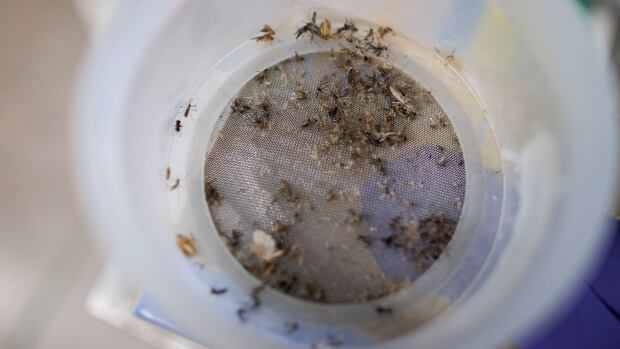
West Nile virus has been found in mosquitoes in Hamilton for the first time this year, according to Hamilton Public Health Services.
In a July 26 media release, public health services said a batch of mosquitoes trapped last week tested positive for the virus.
That puts locals at “moderate” risk of getting infected.
“Residents are reminded to protect themselves against mosquito bites and to remove standing water from private property to prevent mosquito breeding,” reads the media release.
Mosquitoes with the virus were also recently detected in Brantford, Niagara Region and Peel Region.
Ottawa Public Health, meanwhile, confirmed a first human case of West Nile on July 20.
In 2023 there were 54 confirmed cases across Ontario.
How to protect yourself from mosquitoes
West Nile virus is primarily spread by the northern house mosquito.
Only a small number of people bitten by a mosquito carrying the virus will become infected, and roughly 80 per cent will not have symptoms, public health said.
Others may experience West Nile fever. In about one per cent of cases, they may develop more severe illness including inflammation of the brain or the lining of the brain.
For any infection, if symptoms do occur, they appear two to 14 days after being bitten by an infected mosquito, according to public health.
Public health says ways to protect yourself from mosquitoes include:
- Using a mosquito repellent (bug spray) containing DEET or Icaridin.
- Reducing mosquito breeding sites by removing standing water at least weekly from your property.
- Avoiding areas where mosquitoes are known to be present or cover up by wearing light-coloured long sleeves and long pants when in places mosquitoes hunt, such as wooded areas, on the golf course, or in the garden, especially at dawn and dusk when mosquitoes are most active.